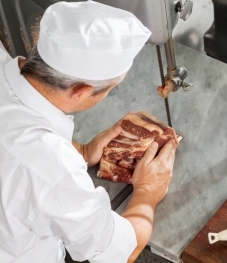Messe Frankfurt (Shanghai) Co Ltd. Signs Cooperation Agreement for Meat Expo China

Messe Frankfurt (Shanghai) Co Ltd and the Circulation Industry Promotion Center (CIPC), a subsidiary of the Chinese Ministry of Commerce, have signed a cooperation agreement for Meat Expo China, China’s leading trade fair for the meat industry.
Wolfgang Marzin, president and CEO of Messe Frankfurt, said he was pleased about the expansion of the trade fair portfolio.
He added, “This strategic decision is a significant step for Messe Frankfurt in our efforts to bring our food technology expertise to bear more effectively in China”.
Messe Frankfurt has many years of expertise organizing food technology trade fairs. Since 1971, it has organized IFFA, the leading meat fair in Frankfurt.
As well as this, it organizes Tecno Fidta powered by IFFA in Buenos Aires, the leading event in the South American food processing sector.
During the past year, Messe Frankfurt already has taken over Modern Bakery, the only trade fair in Russia to cover the entire spectrum of the bakery and confectionery sector and all related areas. All of these flagship events provide an international transfer of knowledge on key food industry topics such as hygiene, automation, traceability and product safety.
With Meat Expo China, Messe Frankfurt is further developing the future-oriented area of Food Technology.
The next Meat Expo China will take place Nov. 25-27 in the Shanghai New International Expo Center.
The first Meat Expo China was organized in Harbin in 2002. In the past year, 84 exhibitors showcased their products with some 6,000 visitors taking part.


Add new comment